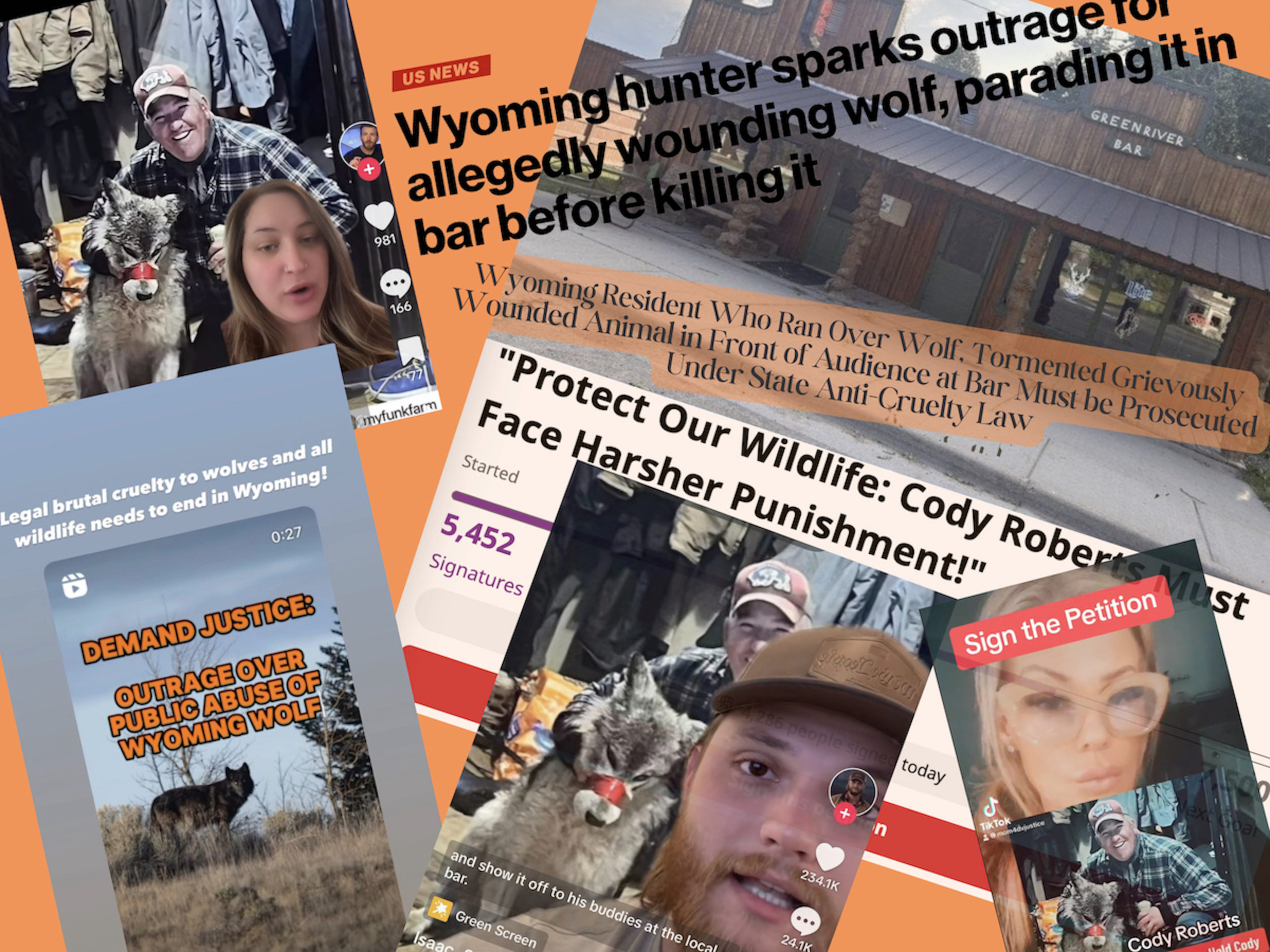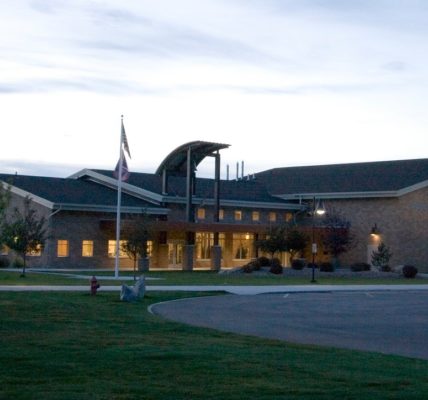
By Hannah Shields
Wyoming Tribune Eagle
Via- Wyoming News Exchange
CHEYENNE — The Wyoming Predators Working Group unanimously supported a draft bill Wednesday that would continue to allow residents to intentionally run over predatory animals with snowmobiles but require those who do so to kill the animal immediately.
The bill draft was one of two discussed during its latest meeting at the state Capitol.
Bill draft 140, “Animal abuse-predatory animals,” classifies intentionally running over predatory animals without using “all reasonable efforts” to kill it immediately as animal abuse.
The bill creates a misdemeanor charge punishable up to six months in jail or a $1,000 fine or both.
Rep. Liz Storer, D-Jackson, who chairs the committee, told the WTE she had her doubts about the bill’s effectiveness, which would keep this practice legal in the state.
“I probably should have voted no,” Storer said. “I don’t think it does very much.”
Sen. Mike Gierau, D-Jackson, however, partially disagreed with his colleague. He told the WTE Wednesday’s meeting was a “small victory.”
He agreed with Storer that the bill doesn’t do very much, but anything too radical would have shut down the conversation altogether.
“We’ve got ranchers at the table, we’ve got Game and Fish at the table, we’ve got legislators at the table who all voted yes on something,” Gierau said. “I think it was a victory today.”
The working group is an extension of the Legislature’s Joint Travel, Recreation, Wildlife & Cultural Resources Committee. It’s been tasked with developing a proposed bill for the committee, which will now consider it in its Sept. 30 meeting in Cheyenne.
The group was created in response to the case of Daniel resident Cody Roberts, who ran over a young wolf with his snowmobile earlier this year, then tied it up and took it to a bar before eventually killing it.
After the incident drew outrage from animal rights advocacy groups and concerned individuals across the country, the working group was formed to address the issue. But it’s an uphill battle — “coyote whacking” is a popular way to kill predatory animals among some Wyoming ranchers.
Not good enough
Nearly everyone who testified during the meeting criticized the proposed legislation for soft language and a lack of teeth. Cindy Campbell, who works with Wyoming Wildlife Advocates, said what happened in Daniel “was far from an isolated incident.”
“It’s offensive that our state does not have specific and harder felony animal cruelty statutes that address these despicable acts against all Wyoming wildlife,” Campbell said. “Omitting predatory animals from this protection is shameful and wrong, and it defiles the basic human decency of our citizens.”
WWA program director Kristin Combs said she had yet to hear the scientific justification for using snowmobiles to kill predatory animals. She said “there’s an entire other toolbox” that has to be looked into, such as range riders, carcass removal, drones, box lights and low stress livestock handling.
Others who testified pointed to Wyoming’s image.
Ashea Mills from Gardiner, Montana, said she’s lived near the edge of Yellowstone National Park since 1995. She works in a tour-guiding business within the park and said she’s seen comments on Yellowstone trip planning websites.
These comments encourage Yellowstone tourists to avoid spending their dollars in Wyoming.
“These travelers are and should be supporting your local economies as they make their way across Wyoming,” Mills said. “If you use data and your own business intelligence, you’d actually make more money by instituting the barely reasonable amendments to state predator policies discussed today.”
Jackson resident Taylor Phillips, who founded and owns a local touring company, said he comes across thousands of visitors from all over the globe. Tourists expect Wyoming “to have a sound, ethical interaction with all wildlife species,” Phillips said.
“We can’t afford to have wildlife management policies that allow unethical treatment of animals,” Phillips said. “The future of our own tourism economy is at stake here.”
Only those who signed up online to testify were able to do so Wednesday. All members of the working group met virtually through Zoom, as a crowd of nearly 20 people sat in a room in the Capitol Extension, waiting for a chance to speak that never came.
After the meeting ended, one member approached a Legislative Office Service staffer. She said she tried to notify Storer that people had come to testify in person but didn’t get a response. Instead, they were directed to submit written comments to members of the group.
Removing ‘humane’
Before the bill draft was forwarded to the group’s next meeting in October, members voted to remove the word “humane” from its language. Wyoming Game and Fish Department Director Brian Nesvik suggested the amendment.
Earlier in the meeting, Nesvik said the terminology is “not broadly understood by most people.”
“I don’t think ‘humane’ does have a fairly common understanding by folks,” Nesvik said. “There’s certain folks that believe hunting is inhumane.”
LSO staff confirmed the word is used in other areas of Wyoming statute, but hasn’t been statutorily defined. Members of the group said they were concerned the word was too broad for interpretation.
Storer told the WTE she believed that the word “humane” was a conforming amendment in the bill.
“(It) also expresses the idea that we’re still trying to say that, no matter what we allow, it should be done in a humane manner,” she said.






2 COMMENTS
Comments are closed.